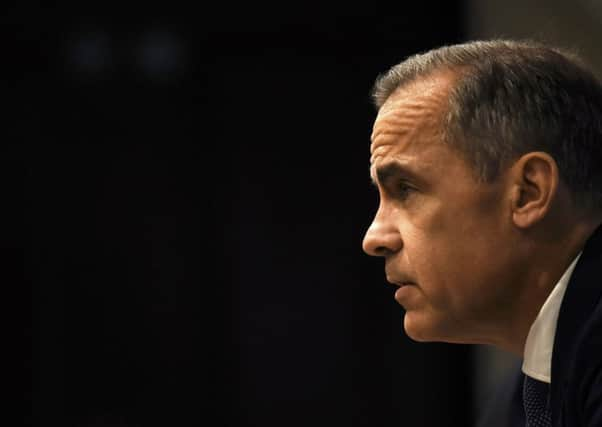Interest rate cuts would be a disaster, experts warn


This was the view of leading economists in the region on the eve of the next meeting of Monetary Policy Committee, wherein the Bank of England’s top economists are widely expected to announce a cut in interest rates to 0.25 per cent, a historic low.
The bank was predicted to make the cut last month but decided to maintain the 0.5 per cent level while strongly eluding that the cut would come this month.
Advertisement
Hide AdAdvertisement
Hide AdBank of England governor Mark Carney and his team hope the newly reducted rate will give the country’s economy a shot of confidence as markets continue to struggle following the UK’s historic decision to exit the European Union.
However a canvasing of opinion by The Yorkshire Post revealed little appetitie for the move, with experts warning of dangerous consequences if the bank reduces the rate any further than the level it has now been at for eight years.
Iain Clacher, associate professor of accounting and finance at Leeds University Business School, said: “The cutting of the base rate to 0.25 per cent is going to have a terrible impact on pensions and savings.
“For many, they are already receiving paltry rates of interest on their savings and this is only going to get worse, and for many in retirement who look to generate something from their savings while maintaining the value of their capital, the past eight years have been devastating.
Advertisement
Hide AdAdvertisement
Hide Ad“The other issue with this is that monetary policy and the setting of interest rates is a near exhausted policy. The cutting of rates means that there is little to no powder left in the Bank of England’s arsenal. Moreover, there is a real potential for inflation to come back and the policy remit of the Bank of England is inflation and interest rates. If inflation spikes interest rates will have to go up and while this is good for savers and pension funds, many who have borrowed at incredibly cheap rates may find they have over extended themselves and where we go then is yet another huge uncertainty to add into an already uncertain economic environment.”


Andrew Sentance, senior economic adviser at PwC and former MPC member, told The Yorkshire Post: “It is hard to see how a further cut in interest rates will help in this environment, except to push down the value of the pound still further - which would add to business costs and raise inflation.
“Consumers and businesses in Yorkshire would be better off it interest rates were kept stable while we assess the economic impacts of Brexit.
“The Bank of England should resist the pressure to make a token cut in interest rates which would not address the underlying reason for the downturn in confidence since the EU referendum result.”
Advertisement
Hide AdAdvertisement
Hide AdPeter Hill, chief executive at Leeds Building Society: “Whilst this will be seen as good news for borrowers, savers will be further disappointed following over seven years of diminishing returns.”


However Martin Jenkins, practice senior partner at Deloitte in Yorkshire, sounded a more positive note in favour of a rate cut.
He said: “As the bank rate reflects the rate of return on risk-free investment, such as the interest offered on a cash ISA, a cut in rates should boost prices of riskier assets, such as equities and property, as investors look for higher returns through these investments.
“But most importantly, a rate cut will signal to investors that the Bank stands ready to act on any perceived weakening of the economy or signs of turmoil in financial markets. At the least, this should support financial market stability and boost investor confidence in the UK economy.”
Advertisement
Hide AdAdvertisement
Hide AdThe news comes on the day that it was warned the Bank of England’s stress tests are “worse than useless”, and that British banks would buckle under the strain of a major economic shock.


A study by the Adam Smith Institute said the Bank’s stress tests are like a “ridiculously easy exam with a ludicrously low pass rate”, which disguises the ability of UK banks to cope with an economic blow on the scale of the 2008 financial crisis.
The report, which pinpoints 13 flaws in the stress test, said every single UK lender would currently fail “more rigorous” stress tests by the US Federal Reserve.